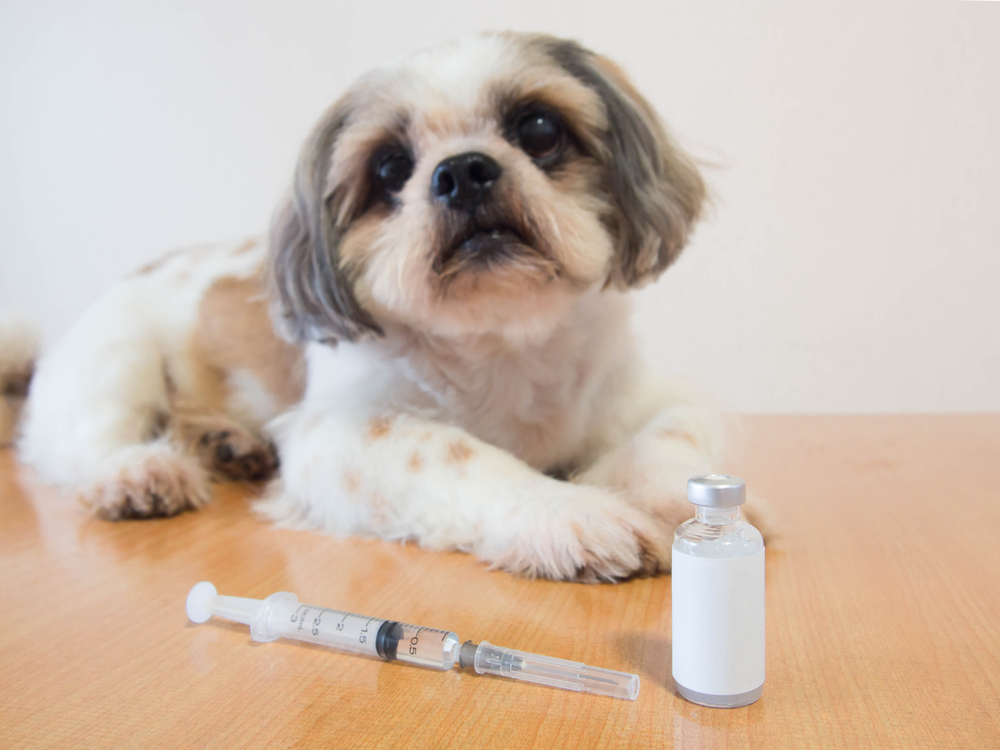September 28, 2020, 5:55 a.m.
Dear Diary,
My eccentric owner woke me up this morning by singing “Happy Rabies Day to you” to the tune of “Happy Birthday,” in honor of today being World Rabies Day. She then informed me that this particular day is focused on raising awareness about rabies prevention. Yawn. Rabies smabies. I’m really not too worried, because my friends at Animal Clinic of Council Bluffs gave me a rabies vaccination earlier this year when I got the rest of my vaccinations. OK—better try to get some rest while I can. I’m pretty sure I heard my owner delightly exclaim that tomorrow is National Coffee Day, so who knows how early she will wake me up tomorrow, or what she might do in her crazy caffeinated state.
Cat-ily,
Sir Purrs-a-lot
Sir Purrs-a-lot may not appreciate his owner’s attempts to commemorate World Rabies Day, or many other days for that matter, but he should be happy that his owner cares about him, and wants to ensure his vaccinations are up-to-date. Vaccinations can be a confusing topic, so grab your coffee—because let’s face it, every day should be National Coffee Day—and get ready to test your vaccination knowledge.
True or False: Tiny pets should be given a half dose of all vaccinations
False. Vaccination dosing is the same, whether you have a miniscule Maltese, or a mammoth mastiff. Vaccinations are designed to deliver the number of viral or bacterial units needed to create an immune response, and that number isn’t connected to body size. Giving only a half dose will not reduce the risk of adverse reactions, but may render the vaccination ineffective.
True or False: Your pet cannot contract the disease from a vaccination
True. Vaccinations go through extensive safety and efficacy testing before receiving FDA approval, and the method of manufacture prevents them from reverting back to a disease-causing form. Killed vaccinations consist of inactivated viral or bacterial particles that cannot multiply in your pet’s body. Think of them as a most-wanted poster in a western saloon—the picture can’t hurt you, but it does let you know who to watch out for. Modified-live vaccinations are made up of a harmless version of the infectious agent that multiplies in your pet’s body, but cannot cause disease. This is akin to a flight simulator, where you prepare for flight by practicing from the safety of the ground before you do the same maneuvers at 30,000 feet.
True or False: All pets should have exactly the same vaccinations
False. Some vaccinations are considered core, meaning they should be administered to all animals, because they protect against common diseases significant to animal and/or human health. Non-core (i.e., optional) vaccinations are selected on a case-by-case basis, so some pets may receive several non-core vaccines, while others may not receive any. When you bring your furry friend to Animal Clinic of Council Bluffs for a wellness visit, our team will consider the following factors when making non-core vaccination recommendations:
- Urban dog — Does your dog go to the groomer, dog parks, doggie daycare, dog shows, or boarding kennels? These social outings put dogs from different families in close proximity, increasing their risk of contracting respiratory diseases, such as bordetella or canine influenza.
- Country dog — Does your dog live in close proximity to livestock, wild rodents, or other wildlife, or do they swim in, or drink from, streams, lakes, or ponds? If so, they are at increased risk of contracting leptospirosis, a potentially fatal disease spread through contact with urine, or urine-contaminated water, soil or feed.
- Outdoors dog — Do you hunt or camp with your dog, or frequent areas where ticks are found? Lyme disease is transmitted through the bite of an infected black-legged tick, and may lead to organ failure, or chronic arthritis.
- Outdoor cat — Does your cat spend time outside, or live with other cats who have outdoor access? If so, they may benefit from a feline leukemia virus (FELV) vaccination, as FELV can be transmitted through bite wounds, sharing dishes, or mutual grooming, and may lead to immunosuppression, or other life-shortening conditions.
True or False: Your pet should be vaccinated by a veterinarian

True. You can purchase many vaccinations at the store or on the internet, but we do not recommend this approach, because your pet may be left vulnerable to the diseases you were hoping to protect them from. Vaccinations can be easily destroyed by freezing, heating, or improper mixing, thus rendering them ineffective, so our Animal Clinic of Council Bluffs team takes great care to ensure vaccinations are properly handled, and administered, for maximal efficacy and safety. The same, however, cannot be guaranteed for do-it-yourself vaccinations. Also, rabies vaccinations, which are required by law for all dogs in Iowa, are critical for rabies control, and can be administered only by a licensed veterinarian.
Don’t forget to exuberantly wish your pets a happy World Rabies Day on September 28, and more importantly, ensure that your pet is up-to date on any necessary vaccinations. Questions about vaccinations? Give us a call. Questions about lesser-known upcoming holidays? There’s always Google for that.






Leave A Comment